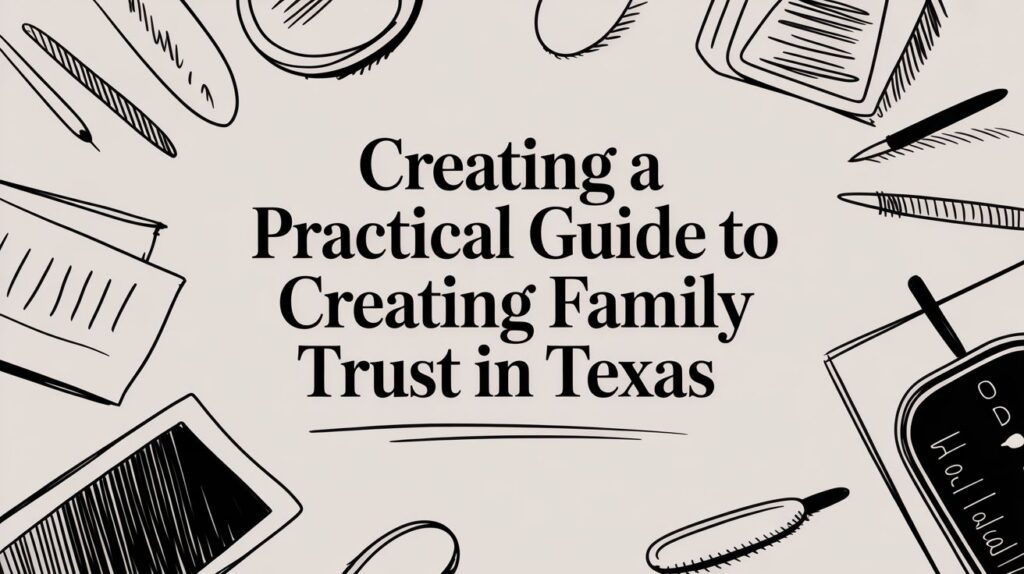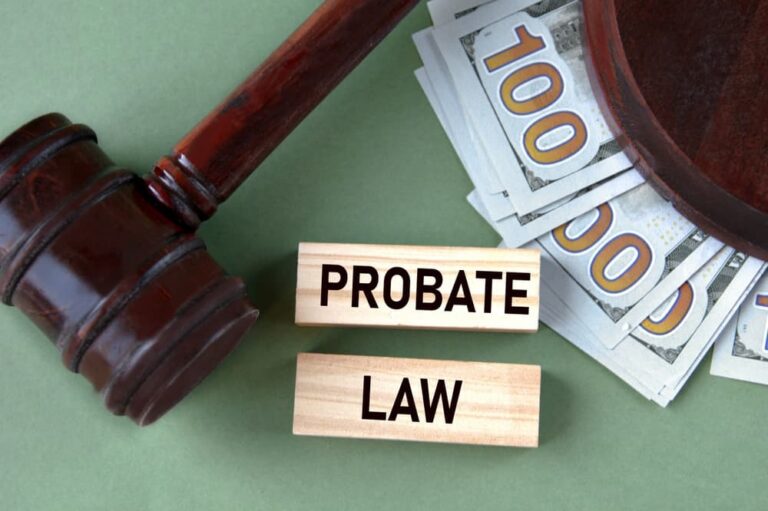Texas probate, often viewed as a daunting legal process, plays a crucial role in settling the affairs of a deceased individual in Texas. Probate is the official mechanism for distributing a person’s assets, settling debts, and transferring property ownership after their passing. In the Lone Star State, understanding the intricacies of probate is essential for ensuring a smooth transition of assets and avoiding potential delays and complications.
When someone passes away, their estate—which encompasses all their assets and liabilities—enters probate. During this process, the court oversees the identification and valuation of assets, payment of debts and taxes, and distribution of remaining assets to heirs or beneficiaries as outlined in the deceased person’s will or according to state law if there is no will.
To navigate probate proceedings effectively, it’s vital to recognize who initiated them. By understanding who needs to go through probate and taking proactive steps, individuals can avoid unnecessary delays and complications in settling the estate.
In this exploration of probate in Texas, we will delve into the key aspects of who needs to go through probate, shedding light on the roles and responsibilities involved in this essential legal process. Through clarity and understanding, individuals can confidently navigate probate, ensuring the efficient distribution of assets and honoring the deceased’s wishes.
Understanding When Probate is Necessary
Probate, while often viewed as a necessary legal process following an individual’s death, is not always mandatory in Texas. The necessity of probate depends on various factors, including the value and type of assets comprising the estate. Understanding when probate is required is essential for effectively navigating the aftermath of a loved one’s passing.
Probate becomes necessary in Texas under several common scenarios, each of which underscores the importance of settling the deceased person’s affairs through formal legal proceedings:
- Assets Titled Solely in the Decedent’s Name: In Texas, assets solely owned by the decedent typically require probate. These assets may include bank accounts, real estate properties, vehicles, and investment accounts held without designated beneficiaries. With probate, transferring ownership of these assets to heirs or beneficiaries may be easier, as there is no legal authority.
- No Surviving Spouse or Minor Children: When there is no surviving spouse or minor children, probate may be necessary to determine the rightful beneficiaries of the estate. In cases where the deceased person did not leave a valid will or inheritance plan, probate provides a legal framework for identifying and distributing assets according to state law. Probate ensures that assets are distributed consistently with the decedent’s wishes or the intestacy laws of Texas.
- Debts Exceeding Estate Value: If the decedent’s debts exceed the value of their estate, probate becomes crucial for managing creditor claims and ensuring an orderly distribution of remaining assets. Probate provides a formal process for addressing creditor claims, allowing creditors to submit claims against the estate for debts the deceased person owes. By prioritizing and settling outstanding debts, probate helps protect the interests of creditors and facilitates the equitable distribution of remaining assets to heirs or beneficiaries.
Alternatives to Probate in Texas
Probate, while a necessary legal process in certain situations, can be time-consuming, costly, and complex. Fortunately, Texas offers several alternatives to probate that allow individuals to transfer assets efficiently and bypass the probate process altogether. Understanding these alternatives is essential for individuals seeking to streamline the transfer of assets and minimize the burden on their loved ones after their passing.
Joint Ownership with Right of Survivorship (JTWROS):
Joint ownership with the right of survivorship is a common estate planning tool that allows assets to transfer seamlessly to the surviving joint owner upon the death of one owner. In Texas, assets such as real estate, bank accounts, and investment accounts can be held jointly with rights of survivorship. When one owner passes away, their asset share automatically passes to the surviving joint owner without the need for probate. This arrangement provides a straightforward and efficient means of asset transfer, ensuring continuity and avoiding the delays associated with probate.

Transfer-on-Death Deed (TODD):
A transfer-on-death deed is a legal document that allows property owners to designate a beneficiary who will receive the property upon the owner’s death. In Texas, real estate owners can use a TODD to transfer property to named beneficiaries outside of probate. By executing a TODD, property owners retain full control and ownership of the property during their lifetime, with the assurance that ownership will transfer directly to the designated beneficiary upon their death. This method offers flexibility and avoids the delays and expenses associated with probate proceedings.
Beneficiary Designations:
Naming beneficiaries on certain accounts and assets allows directly transferring assets to designated individuals upon the owner’s death, bypassing probate entirely. Common accounts that allow for beneficiary designations include retirement accounts (such as IRAs and 401(k)s), life insurance policies, and payable-on-death (POD) bank accounts. Individuals can ensure that assets are transferred seamlessly and efficiently to their chosen recipients by specifying beneficiaries on these accounts without probate involvement.
Who Can Initiate Probate in Texas?
Individuals with the legal authority initiate probate proceedings in Texas to act on behalf of the deceased person’s estate. Identifying the individuals authorized to initiate probate is crucial for ensuring the timely and proper administration of the estate. In Texas, the following parties have the authority to initiate probate proceedings:
Personal Representative (Executor/Executrix)
The personal representative, also known as the executor (if male) or executrix (if female), is the individual designated by the deceased person in their will to administer their estate and handle the probate process. The personal representative’s primary responsibilities include gathering the deceased person’s assets, paying debts and taxes, and distributing the remaining assets to beneficiaries according to the terms of the will. Upon the decedent’s death, the personal representative may file a petition with the probate court to initiate the probate process and obtain legal authority to act on behalf of the estate.
Heirs at Law
In cases where the deceased person did not leave a valid will or estate plan, known as dying intestate, the deceased person’s closest relatives may initiate probate proceedings, as defined by Texas law. Texas law provides a specific order of priority for determining heirs at law, typically including spouses, children, parents, and siblings. Heirs at law may file a petition with the probate court to open an intestate probate proceeding and appoint an administrator to oversee the administration of the estate.
Creditors
In certain circumstances, creditors with legitimate claims against the estate may initiate probate proceedings to recover debts owed to them by the deceased person. Suppose the deceased person’s assets are insufficient to cover their outstanding debts. In that case, creditors may petition the probate court to open a probate estate and appoint a personal representative to administer the estate’s assets and settle outstanding debts. This allows creditors to pursue their claims through probate and seek payment from the estate’s assets.
Avoiding Probate When Possible
Probate, with its complexities and potential delays, can often be burdensome for individuals and their loved ones. Fortunately, there are proactive steps individuals can take to minimize the need for probate and streamline the transfer of assets to heirs or beneficiaries. By engaging in thoughtful estate planning and utilizing various strategies, individuals can effectively avoid probate when possible, ensuring a smoother transition of assets and peace of mind for themselves and their families.
Creating a Will:
A fundamental step in estate planning involves creating a comprehensive will that outlines how assets should be distributed upon the individual’s death. A well-drafted document will allow individuals to designate beneficiaries for specific assets, thereby minimizing the need for probate by providing clear instructions for asset distribution. By proactively addressing potential conflicts or uncertainties regarding asset distribution, individuals can streamline the probate process and ensure their wishes are carried out according to their intentions.
Utilizing Beneficiary Designations:
Beneficiary designations offer a straightforward and efficient way to transfer certain assets outside probate. Individuals can designate beneficiaries on various accounts, such as retirement accounts (e.g., IRAs, 401(k)s), life insurance policies, and payable-on-death (POD) bank accounts. Upon the individual’s death, assets held in accounts with designated beneficiaries pass directly to the named beneficiaries, bypassing probate entirely. Individuals can ensure seamless transfer of their assets to their chosen recipients by regularly reviewing and updating beneficiary designations to reflect changing circumstances.
Considering Joint Ownership (with caution):
Joint ownership with rights of survivorship (JTWROS) is another strategy to help individuals avoid probate by allowing assets to transfer directly to the surviving joint owner upon death. While joint ownership can effectively bypass probate, it’s essential to approach this strategy with caution. Joint ownership entails shared ownership of assets, which may lead to complications or conflicts among joint owners. Furthermore, joint ownership might entail potential tax implications, including considerations for gift tax or capital gains tax. Therefore, individuals should carefully weigh the benefits and drawbacks of joint ownership before implementing this strategy as part of their estate plan.
In conclusion, proactive planning is key to minimizing the need for probate and simplifying the transfer of assets to heirs or beneficiaries. By creating a will, utilizing beneficiary designations, and considering joint ownership with caution, individuals can effectively avoid probate when possible and ensure a smoother transition of assets to their loved ones. Engaging in thoughtful estate planning provides peace of mind, helps safeguard the interests of family members, and preserves the individual’s legacy for future generations.








